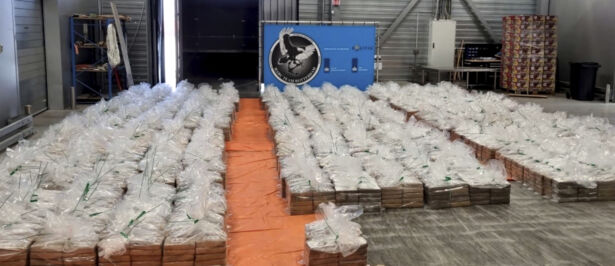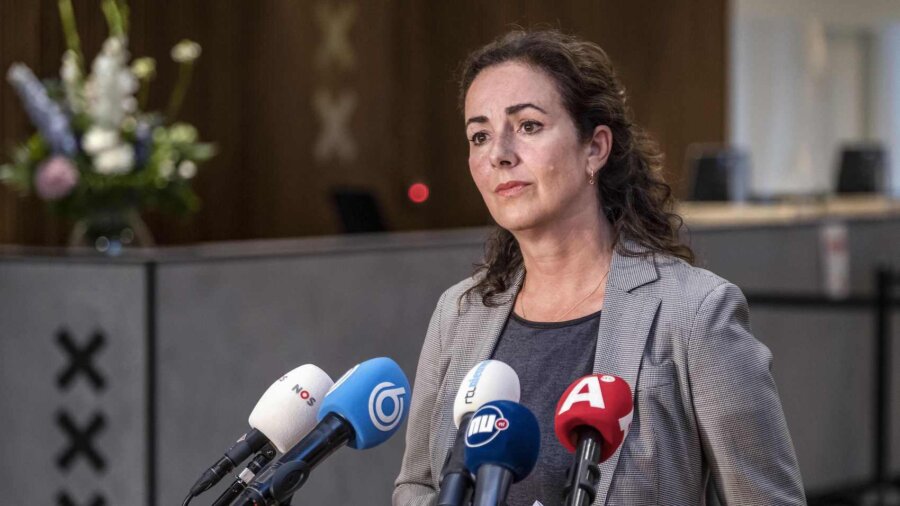Amsterdam Mayor Femke Halsema has called for the regulation of the sale and use of cocaine to undermine organized criminal enterprises.
“Let us conclude that hundreds of years of discouragement and repression have achieved very little,” Ms. Halsema said in an interview with Dutch newspaper Het Financieele Dagblad (FD), calling the war on drugs “perverse and counterproductive.”
The Netherlands seized a record 60 metric tons of cocaine in 2023, up 9 tons from the previous year, in an upward trend that seems unstoppable.
“About 80 percent of our police capacity is spent on drug-related crime. In the Netherlands and Belgium, street prices for coke have been exactly the same for years. So you can only conclude that the incredible amount of efforts have no effect on the market,” she said.
“I am part of a growing group of scientists and administrators who say that the international war on drugs has such perverse effects that it causes more suffering than the drugs themselves.”
A spokesperson for Ms. Halsema later clarified that the mayor is not advocating for “foolhardy legalization” but regulation aimed at taking drug trafficking out of the hands of criminal organizations, similar to the so-called cannabis experiment, in which cannabis is legally supplied to coffee shops.
Big Business
“Apparently people have a need for stimulants. There is a market for that,” Ms. Halsema told FD, adding that this market was “huge”.
Researchers have estimated the yearly revenue of illegal drug trade in the country at 3 billion euros—vast sums of money that need to be laundered. This process intertwines criminal enterprises with legal enterprises, Ms. Halsema said, as she suspected the involvement of realtors, notaries, lawyers, and the unexplainable abundance of tourist shops all over the city.
“But it is very difficult to prove that these are fronts for money laundering,” she said.

Ms. Halsema has for several years been an advocate for the legalization of drugs. At a conference on organized crime in October 2022, she said she hoped countries would look at drug use differently and formulate an “alternative strategy”.
She hoped her plan would also address related problems such as the illegal dumping of drug manufacturing chemicals, illegal cultivation, and forced labor in drug labs.
Public Health
Though Ms. Halsema admitted that the “abuse of drugs can lead to serious consequences,” she believed that “the risks are often exaggerated.”
“Cocaine, for example, is not as bad for you as alcohol. It’s a choice people make,” she claimed.
She also said that the public health risks are a good argument to not leave the market in criminal hands.
Earlier this month, in an opinion piece published in The Guardian, Ms. Halsema said she feared that the Netherlands is at risk of becoming a narco-state under the expanding influence of criminal enterprises.
“The rise of the global drug trade means we need international solutions,” she wrote.
Yet Ms. Halsema understands that her plans are controversial; she is well aware that the mayors of both Rotterdam and Belgium’s Antwerp—Europe’s largest ports that are also major drug-trafficking hubs—will not support her plan, as they both publicly expressed their aversion to drug legalization last year, in a newspaper interview.
“Already hundreds of thousands of families are ruined by legal drugs like alcohol and nicotine,” Antwerp Mayor Bart De Wever told The Volkskrant. “I think it’s totally immoral to then add even heavier products to that list.”
Ms. Halsema is a member of Groenlinks, a green leftist political party formed in 1989 from a merger of the Netherlands Communist Party, the Pacifist Socialist Party, the Political Party of Radicals, and the Evangelical People’s Party.


